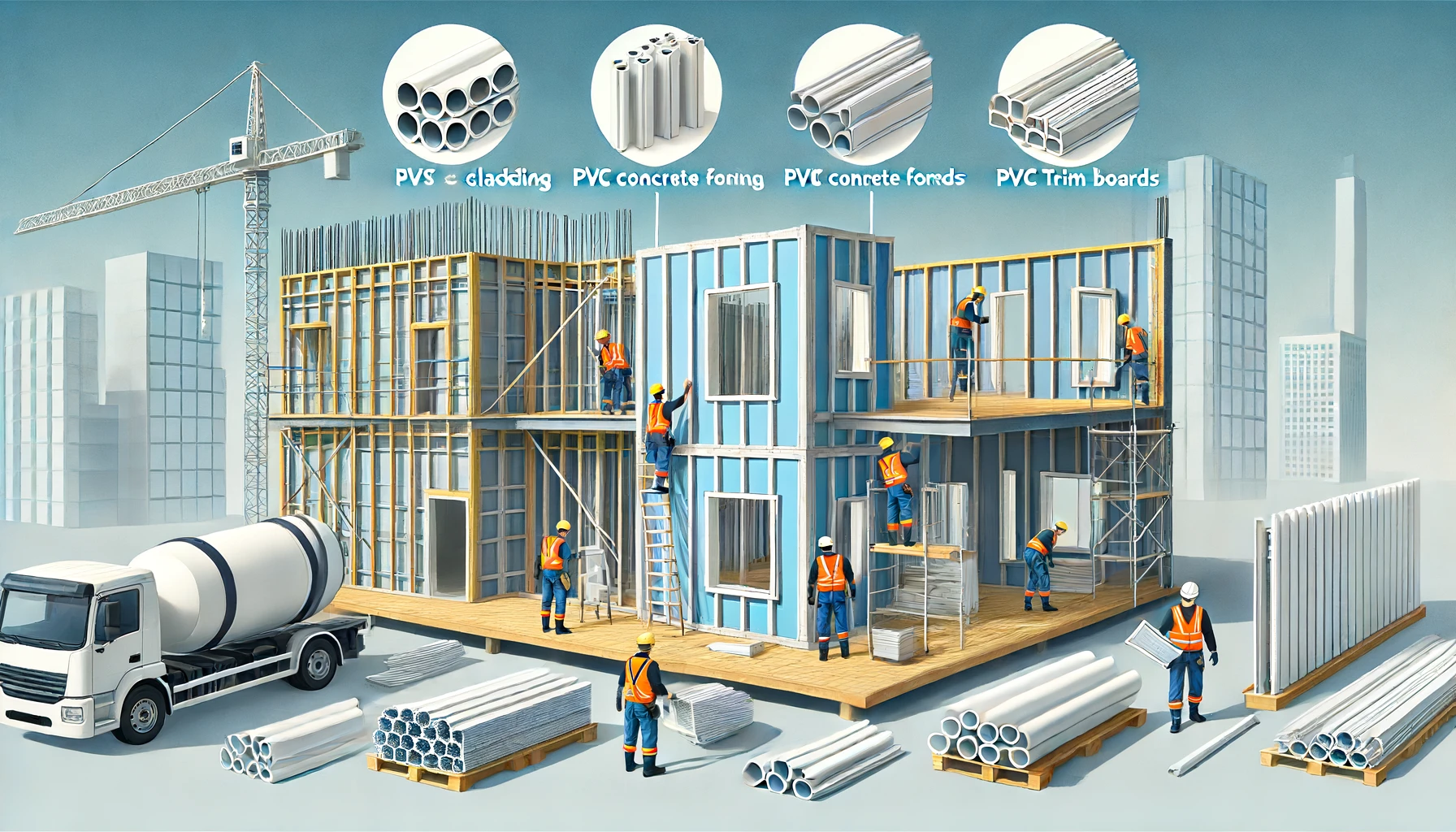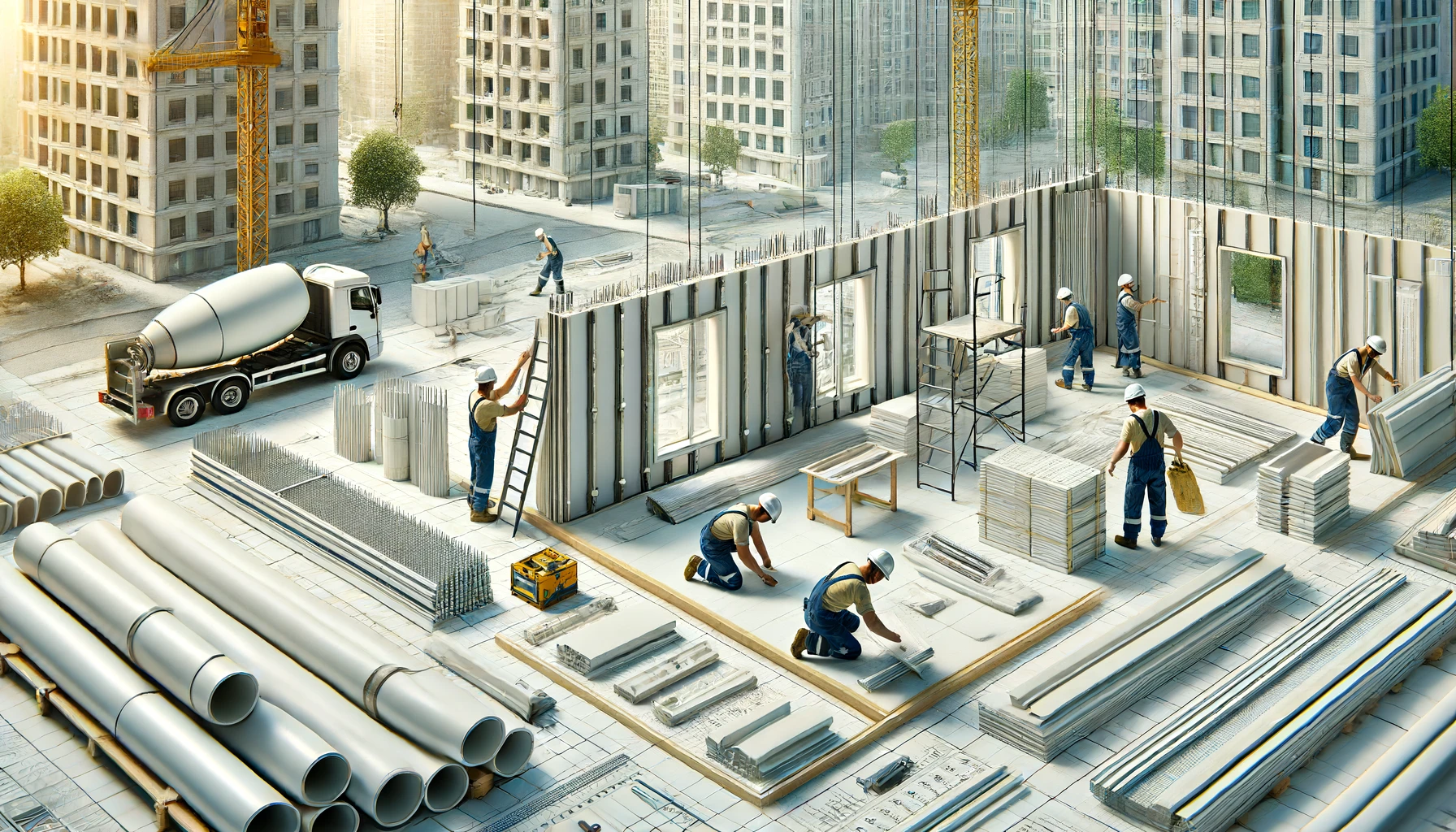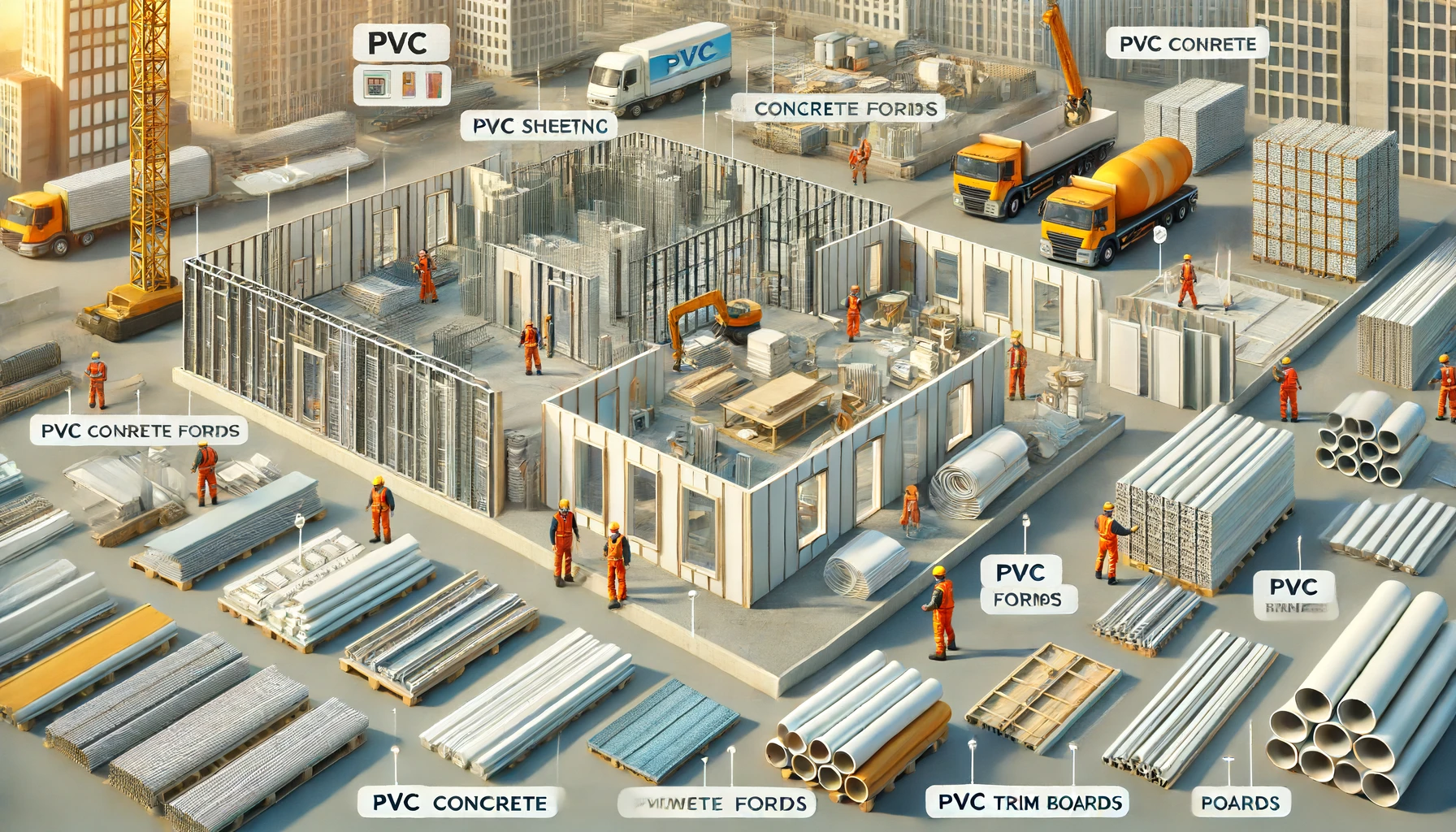In today’s economy, finding cost-effective solutions for building projects is more critical than ever. Construction materials need to balance affordability with durability, versatility, and sustainability. Enter PVC (Polyvinyl Chloride) products: a modern solution that meets all these requirements and more. Widely used in various applications, from residential and commercial buildings to large-scale infrastructure projects, PVC products offer a compelling combination of cost savings and performance benefits.
In this blog post, we’ll explore how PVC products provide budget-friendly brilliance for building projects. We’ll delve into what PVC is, its key benefits, and how it compares to traditional materials in terms of cost-effectiveness. We’ll also look at the practical applications of PVC in different types of construction, discuss its environmental impact and sustainability, and offer tips on choosing the right PVC products for your project. By the end of this post, you’ll have a clear understanding of why PVC is an excellent choice for your next building venture.
Understanding PVC and Its Benefits
What is PVC?
Polyvinyl Chloride, commonly known as PVC, is a synthetic plastic polymer that has become a staple in the construction industry. It is created through the polymerization of vinyl chloride monomers. PVC’s history dates back to the early 20th century, but it gained significant popularity in the 1950s as a durable, flexible, and cost-effective material for various industrial applications, including building and construction.
Key Benefits of PVC Products
Durability
PVC products are known for their exceptional durability. They resist weathering, chemical corrosion, and physical damage, making them suitable for both indoor and outdoor use. Unlike wood, which can rot or warp, or metal, which can rust, PVC maintains its integrity over time.
Versatility
PVC's versatility is one of its standout features. It can be molded into various shapes and sizes, making it ideal for a wide range of applications, including pipes, window frames, flooring, and roofing. This adaptability makes it a preferred material for diverse construction needs.
Eco-Friendliness
PVC production has become more environmentally friendly over the years. Many manufacturers now use sustainable practices and incorporate recycled materials into their products. Additionally, PVC is fully recyclable, which helps reduce waste and promote sustainability in the construction industry.
Low Maintenance
One of the significant advantages of PVC is its low maintenance requirements. It does not need painting, staining, or sealing like wood products. Its smooth surface is easy to clean, and it does not attract pests or promote mold growth, further reducing maintenance efforts and costs.
Cost-Effectiveness of PVC Products
Initial Costs
When it comes to initial costs, PVC products often have a significant advantage over traditional materials. For example, PVC pipes are generally less expensive to purchase and install compared to metal or copper pipes. Similarly, PVC window frames and flooring tend to be more affordable than their wooden or aluminum counterparts. This cost efficiency makes PVC an attractive option for budget-conscious builders and homeowners.
Long-Term Savings
Maintenance Savings
Over time, the low maintenance requirements of PVC translate into substantial savings. Traditional materials like wood and metal require regular upkeep to prevent deterioration, while PVC's resilience reduces the frequency and cost of repairs.
Energy Efficiency
PVC products often provide excellent insulation properties, which can help reduce energy consumption in buildings. For instance, PVC windows and doors can significantly improve thermal efficiency, leading to lower heating and cooling costs.
Lifespan
The long lifespan of PVC products means fewer replacements and lower associated costs. This durability ensures that PVC remains a cost-effective choice throughout the life of the building.
Practical Applications of PVC in Building Projects
Residential Buildings
In residential construction, PVC is widely used for plumbing, window frames, doors, and flooring. PVC pipes are preferred for their ease of installation and resistance to corrosion, ensuring a reliable plumbing system. PVC window frames offer excellent thermal insulation, contributing to energy efficiency in homes. Case studies have shown significant cost savings in homes that use PVC products, from reduced energy bills to lower maintenance costs.
Commercial Buildings
Commercial spaces benefit from PVC’s durability and versatility. PVC roofing and cladding provide long-lasting protection against the elements, while being cost-effective to install and maintain. PVC wall panels are another popular choice, offering a sleek, modern look with minimal maintenance. Businesses looking for durable, low-cost building solutions often turn to PVC for these reasons.
Infrastructure Projects
Large-scale infrastructure projects also utilize PVC extensively. It is used in drainage systems, electrical conduits, and fencing. The robustness and longevity of PVC make it ideal for such demanding applications. Examples of successful infrastructure projects include municipal water systems and public buildings where PVC’s cost-effectiveness and durability have proven invaluable.
Environmental Impact and Sustainability
Sustainable Production Processes
PVC production has evolved to become more sustainable. Modern manufacturing processes focus on reducing environmental impact, such as minimizing emissions and using energy-efficient technologies. Many manufacturers also incorporate recycled PVC into their products, further enhancing their sustainability credentials.
Recyclability and Waste Reduction
PVC is fully recyclable, which significantly reduces its environmental footprint. The recycling process involves breaking down old PVC products and reprocessing them into new materials. This not only conserves resources but also helps in reducing construction waste, aligning with the principles of a circular economy.
Contribution to Green Building Standards
PVC products contribute to green building standards like LEED (Leadership in Energy and Environmental Design). They help builders and developers meet sustainability goals by providing materials that are durable, recyclable, and energy-efficient. This alignment with green building certifications adds value to projects that prioritize environmental responsibility.
Choosing the Right PVC Products for Your Project
Factors to Consider
When selecting PVC products for your building project, consider the quality and standards of the products. Look for suppliers with a reputation for high-quality materials and certifications that ensure compliance with industry standards. Coastal Custom Products, for example, offers a range of certified PVC products that meet rigorous quality criteria.
Tips for Selection and Installation
Quality Checks
Ensure that the PVC products you choose are free from defects and meet the necessary specifications for your project.
Supplier Reputation
Work with reputable suppliers who provide guarantees and after-sales support.
Installation Best Practices
Follow best practices for installation to maximize the benefits of PVC products. This includes proper sealing, securing, and regular inspections to ensure longevity and performance.
Conclusion
PVC products offer a compelling blend of cost-effectiveness, durability, and sustainability, making them an excellent choice for a wide range of building projects. From initial cost savings to long-term maintenance and energy efficiency, PVC stands out as a versatile and reliable material. Whether you’re working on a residential, commercial, or infrastructure project, consider PVC for its budget-friendly brilliance.
Explore the range of PVC products offered by Coastal Custom Products and contact us for more information or a quote. Start your journey towards a cost-effective and sustainable building solution today.



